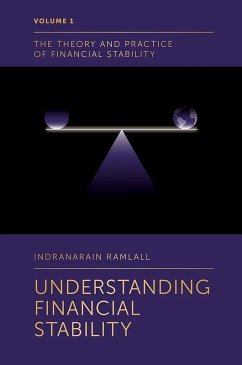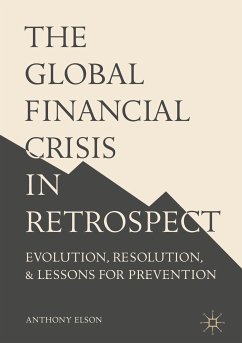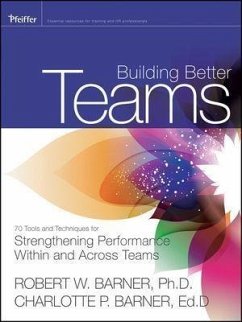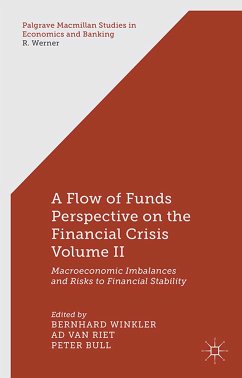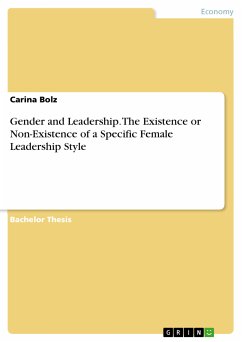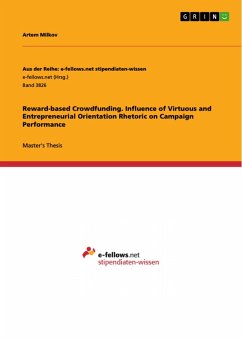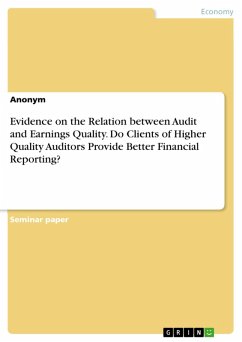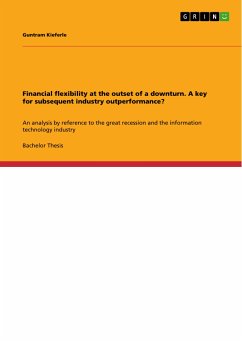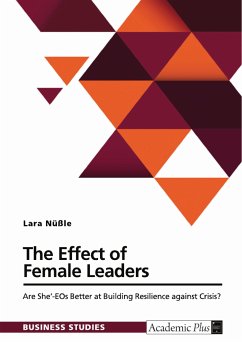
The Effect of Female Leaders. Are She'-EOs Better at Building Resilience against Crisis? (eBook, PDF)
Versandkostenfrei!
Sofort per Download lieferbar
Statt: 47,95 €**
36,99 €
inkl. MwSt. und vom Verlag festgesetzt.
**Preis der gedruckten Ausgabe (Broschiertes Buch)
Alle Infos zum eBook verschenkenWeitere Ausgaben:

PAYBACK Punkte
0 °P sammeln!
Master's Thesis from the year 2022 in the subject Leadership and Human Resources - Leadership, grade: 1,3, University of Mannheim, language: English, abstract: This thesis explores whether female CEOs are better in crisis-related resilience measures in comparison to male CEOs. The research question is twofold: One part focuses on stability which is measuring the ability to absorb adverse events, the other part considers flexibility which captures the ability to bounce back from such events. Both hypotheses are developed via Social Role Theory and the communal behavior which females are conside...
Master's Thesis from the year 2022 in the subject Leadership and Human Resources - Leadership, grade: 1,3, University of Mannheim, language: English, abstract: This thesis explores whether female CEOs are better in crisis-related resilience measures in comparison to male CEOs. The research question is twofold: One part focuses on stability which is measuring the ability to absorb adverse events, the other part considers flexibility which captures the ability to bounce back from such events. Both hypotheses are developed via Social Role Theory and the communal behavior which females are considered to show more in comparison to males, given this theory. Empirically, the hypotheses are evaluated with a sample of S&P 1500 US companies within the first three years after the financial crisis in 2008. For stability, 1,152 companies were used, and an OLS regression suggests that female CEOs have a negative effect on stability. For flexibility, female CEOs show no significant difference within all the 952 firms of the considered subsample when applying a logit regression. Overall, existing research provides incomplete and inconclusive results on the roles of She'-EOs (female CEOs) vs. male CEOs in creating resilience after crises. Thus, in this Master Thesis, I address the following two research questions: Do firms managed by She'-EOs (vs. male CEOs) have more stability for resilience against crises (i.e. operationalized as a lower drop in ROA after crisis) Do firms managed by She'-EOs (vs. male CEOs) have more flexibility for resilience against crises (i.e., operationalized as an earlier recovery of ROA after crisis)?
Dieser Download kann aus rechtlichen Gründen nur mit Rechnungsadresse in A, B, BG, CY, CZ, D, DK, EW, E, FIN, F, GR, HR, H, IRL, I, LT, L, LR, M, NL, PL, P, R, S, SLO, SK ausgeliefert werden.




